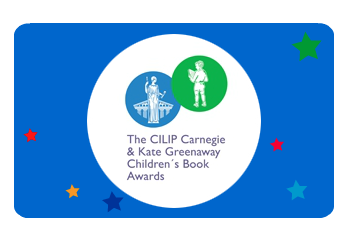
It is the first of June 2022, and we are in Queen Week, as Grayson Perry has named it. Tomorrow the Jubilee. proper, starts. Or even more properly, the Platinum Jubilee, although platinum has never seemed a very romantic or heroic metal to me.
Platinum is more aligned to pens, replacement joints and showy gents watches. Gold and silver seem like real metals to me, burnished bright by myths, legends and stories. Of course, stories - national, personal, "real" or fictional - is what this celebration is about, the queen's own complicated story included.
Unusually, I do have a string of bunting at the ready (see above)
I found it in a very old toffee tin among a random collection of family items. The well-preserved bunting - pictured above - was last used for the Coronation of the present Queen in 1953. It might have been there for the Coronation of her father, George VI in 1936, and have fluttered between both crownings, to celebrate the end of the War in Europe (WWII) in 1946. With three outings at most, our family bunting has not, suffered much wear and tear or frequent outdoor flutterings.
Royal sentiment has never been a big thing in our family but this week I will hang up this ancient bunting. I will do it in memory of all those who have gone before through the years of the last century, with all their dreams of a better country and better govenment and a better life for their children - and for the Queen who has been there for much of that time too.
Yet where does the whole "King & Queen" thing comes from for children? Culturally learned from adults or is it a deeper response?
Does, for a short while, a young child's lack of power drive them to dreams of being a "world king"?
Does being called and dressed as a "little princess" fill a child with the value of appearance?
Does this odd regal enthusiasm happen in nations with presidential systems?
I do wonder.
Certainly, the myths and legends I know are full of kings, queens, princes and princesses, though rarely with bright happy endings beyond the wedding. It's clear that a true Princess has to be able to endure suffering, whether a pea beneath her mattress, footwear problems or shape-shifting curse or disguise to be worthy of true queenship.
However, a Queen's beauty can bring tragedy, whether fall of a city, the temptation of the king's best knight, or even - when warned by a magic mirror - death and a glass coffin to the rising princess. Uneasy is - or was - the Queen who wears the crown. Punishment may follow. On the other hand, so might rescue, no matter how loathly your appearance.

Lewis Carrol's Alice finds queens in her fantasies, even becoming one for a short while. In the Adventures in Wonderland, Alice meets the Queen of Hearts. Carol described this Queen as "a sort of embodiment of of ungovernable passion, a blind aimless Fury".
She also meets the Red Queen, in reality a chess piece, during Through the Looking Glass; this queen is "another type: her passion must be cold and calm - she must be formal and strict, yet not unkindly; pedantic to the 10th degree, the concentrated essence of all governesses!" write Carrol. (Aspects of both characters were mixed together to create the Red Queen of Disney's Alice and more recent screen versions. Now I'm feeling pedantic.)
The elderly White Queen, who appears Through The Looking Glass, is vague, whimsical and "able to believe six impossible things before breakfast" and sometimes believes she is searching for her lost daughter. All too like dementia now to be comfortable.
I feel glad that only Queen Elizabeth's pins are wobbly - as shown by her shrug during one too fulsome public Jubilee address recently.
Later on, in the 1920's, A.A. Milne's woodland realm of Christopher Robin acts as a contrast to the urban setting and royal focus of some of his verses, from King John's desire for an india-rubber ball, to a King's self-pitying rage about royal butter, and all the way through to real life outings to observe the Changing of the Guard at Buckingham Palace. Rage, temper and the control of behaviour - with kindness - seems to be the message behind some of the verses.

Time and royalty very much moved on and in 1990 another, more modern book with a different royal focus and a sound, warm heart was Morris Gleitzman's "Two Weeks With The Queen," one of the early gay novels for young people.
Meanwhile, right now, my local library is busy focusing on the craft opportunities offered by the re-issue of "The Queen's Knickers"(1993) by Nicholas Allen.
There's plenty more, even adult fantasies, from Alan Bennet's "The Uncommon Reader", rich with praise for what was then, in 2007, a library service available to all low or high, through to 2022 and the second book in S.J Bennet's crime series "Her Majesty Investigates," which might well appeal to some young adults.
Thank you for coming to my Royal Book Muttering. There are so many versions of the Queen to think about. I wonder what story you'd suggest?
Penny Dolan
@pennydolan1
ps. One of our ABBA bloggers, Lynne Benton, has a royal book out right now: Billy and the Queen













.jpg)










